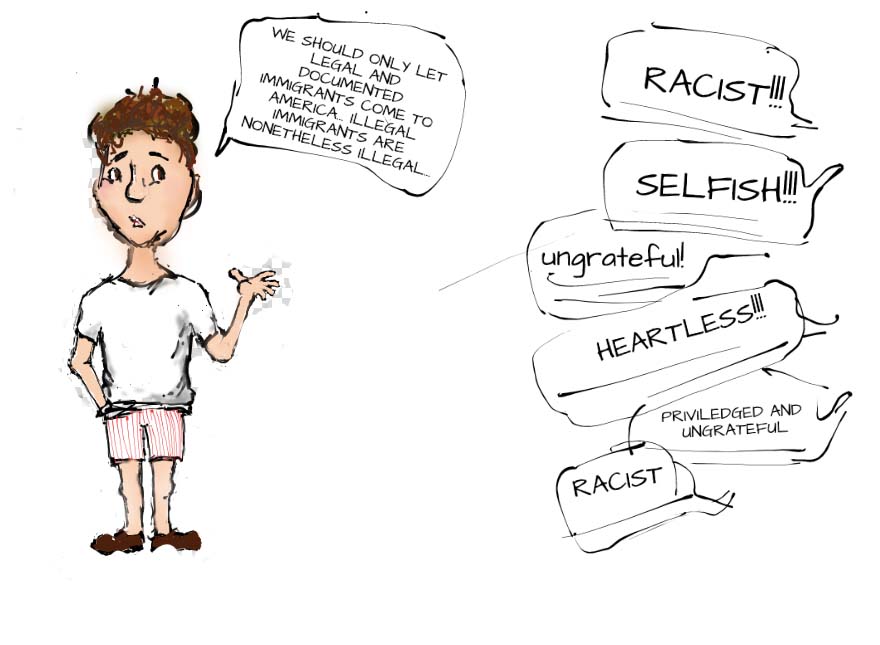Taking Control of the United States’ Immigration Crisis
Immigration is a hot topic in today’s political world and for good reason. The United States has a severe problem with illegal aliens crossing its southern border. If this immigration crisis is not addressed, the country will continue to suffer, both economically and socially.
The argument I hear most commonly made in defense of illegal immigration is that it is somehow not the immigrants’ faults for illegally crossing the U.S.-Mexico border. It’s not their fault – they are simply fleeing from violence; they simply want a better life for their children; they simply want jobs – it’s not their fault.
Firstly, asylum seekers are a separate issue, as they apply for refugee status from outside of the country and are, therefore, not illegal immigrants. Secondly, all situations that result from one’s actions are undeniably one’s fault. Lastly, crossing the border without pertinent documents is a criminal offense. Therefore, illegal aliens are choosing to commit a crime; for this, they should be punished.
Right now, there are absolutely zero repercussions for being deported from the U.S. Zero. This means that when someone is considering entering the U.S. illegally, there is no apparent downside. After all, the worst thing that can happen to an illegal alien is that they end up back in their home country in the same situation in which they originally found themselves. This must change. Any system which doesn’t punish a violation of its rules is bound to be dysfunctional. The U.S.’ immigration problem will continue until a system is put in place to punish illegal aliens.
Of course, the U.S. has no jurisdiction in foreign countries and, as a result, cannot make foreign countries punish their citizens who illegally immigrated to the U.S….or can it? If proper diplomatic accords were proposed by the U.S., the immigration crisis would vanish.
The promise of a U.S. visa is a powerful incentive. The U.S. should renegotiate all of its immigration accords, requiring that any country which does not assign prison time to its citizens after they have been deported from the U.S. for illegal immigration will not be eligible for diplomatic relations with the U.S. and its citizens will no longer be able to apply for American visas. Of course, the accords would have to go both ways (the U.S. would also give prison time to Americans deported from other countries for illegal entry).
If the United States does, illegal immigration will most certainly stop, and the country will be able to issue more working visas to retain immigrants that the economy very clearly demands. After all, the U.S. was built on the backs of immigrants. Legal ones, that is.





